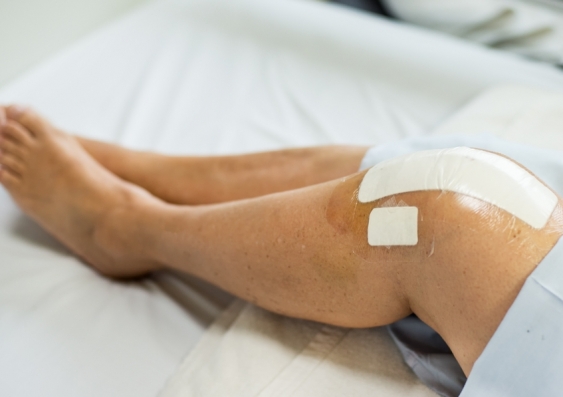Home rehab after knee replacement no disadvantage, UNSW research finds
Knee-replacement surgery patients who choose rehabilitation at home are no worse off than those who stay in hospital, a UNSW study has found.
Knee-replacement surgery patients who choose rehabilitation at home are no worse off than those who stay in hospital, a UNSW study has found.

Gabrielle Dunlevy
UNSW Media Office
02 9385 1933
g.dunlevy@unsw.edu.au
More than 50,000 first-time, total knee replacement surgeries are performed each year in Australia, and new research shows those patients who opt to recover at home, rather than in hospital, are at no disadvantage.
A study published in JAMA led by Associate Professor Justine Naylor of UNSW South Western Sydney Clinical Medical School and PhD student Mark Buhagiar looked at patients who took part in 10 days of inpatient rehabilitation.
Their mobility was no better than patients who took part in a monitored home-based program, and they did not report better outcomes for pain, function or quality of life.
In Australia, about 60% of knee replacement surgeries are performed in private hospitals, and up to 80% of those patients participate in inpatient rehabilitation, depending on the hospital and the state. Private health insurers reimburse at a cost of around $700 per day for an average 12 days.
Dr Naylor says adopting far simpler – and cheaper – rehabilitation models should help reduce upward pressure on health insurance premiums, encouraging more people to keep their private health cover.
The finding follows previous studies that have been undertaken by their group and elsewhere that observed more intensive rehabilitation programs do not generate better outcomes generally.
“It wasn’t altogether surprising because we were already seeing this pattern, with rehabilitation models assumed to be more intensive, and therefore more effective,” Dr Naylor says.
While private health cover is one factor driving people to inpatient rehab, in some cases it is the surgeon’s preference, or the patient’s preference to have closer supervision.
But for those who don’t have the option of inpatient rehab, for example people in rural areas or patients who are not privately insured, the finding suggests their mobility, function and quality of life shouldn’t suffer a set-back as a result.
The research involved 252 patients with osteoarthritis who underwent a total knee replacement and did not experience significant early complications.
It involved researchers from South West Sydney Local Health District, HammondCare and the Ingham Institute and was funded in part by the HCF Research Foundation, which had no influence in the study design or presentation of the results.